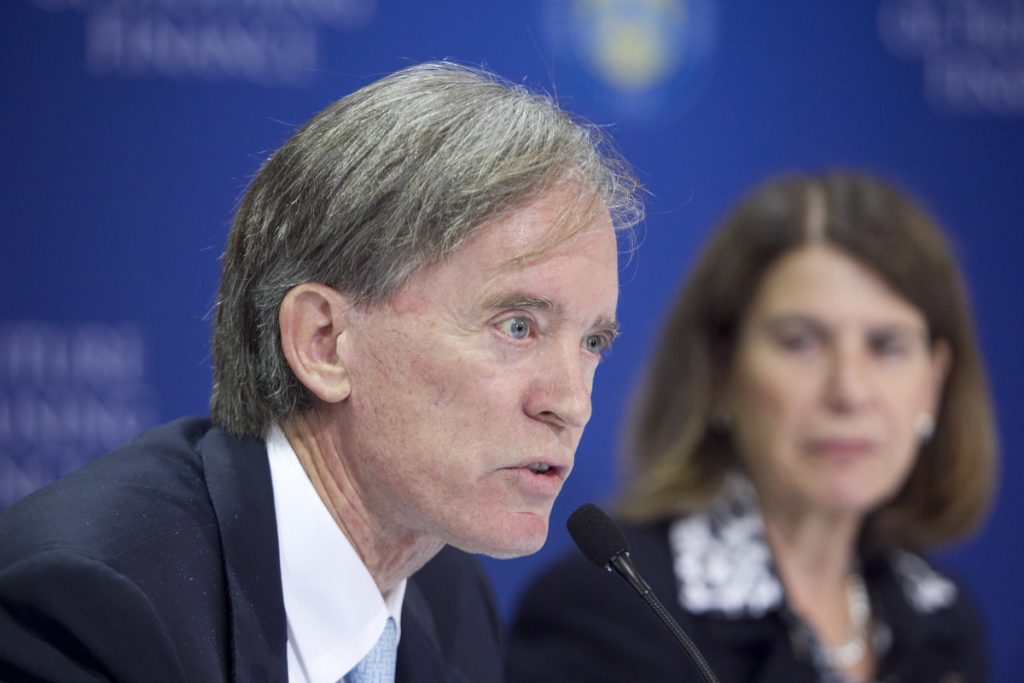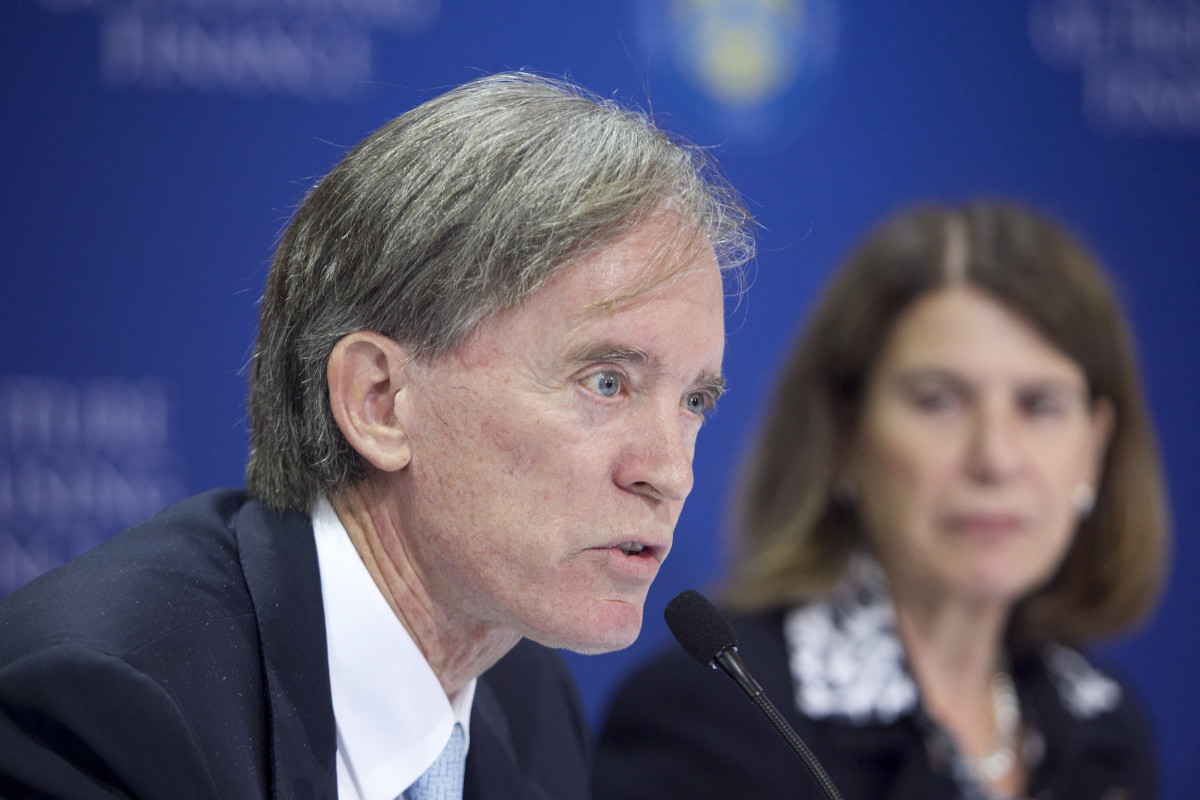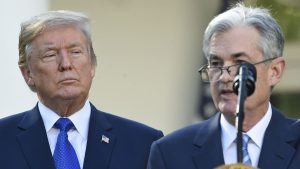Legendary fund manager makes bold stock market prediction

The stock market has rallied sharply since President Trump paused reciprocal tariffs on April 9. It recouped steep losses after those tariffs were proposed on April 2, so-called “Liberation Day.”
The S&P 500’s rally has happened despite data suggesting a potential slowdown in the U.S. economy is underway and heightened recession risk due to remaining tariffs, including a staggering 145% tariff on China that’s got multinational companies like Amazon rethinking their guidance for the rest of the year.
Related: Billionaire Bill Ackman sends hard-nosed message on China, U.S. trade war
Now that the relief rally has lifted stocks back to levels where short-term indicators flash overbought, investors wonder if they should still ‘buy the dip’ or ‘sell the rip.’
The current stock market set up has caught the attention of veteran Wall Street bond manager Bill Gross, who has been tracking markets professionally since 1971.
Gross co-founded Pacific Investment Management Co., or PIMCO, a major asset manager with $2 trillion under management. His role managing PIMCO’s massive $270 billion Total Return Fund earned him the “Bond King” nickname before he joined Janus Henderson Investors, where he worked from 2014 to 2019.
💵💰Don’t miss the move: Subscribe to TheStreet’s free daily newsletter💰💵
Over his 50-year career, Gross has witnessed more than his share of good and bad markets. This week, he offered a bold prediction that stock market investors should consider.

Bloomberg/Getty Images
The Federal Reserve risks being behind the curve yet again
The Federal Reserve’s dual mandate is to target low inflation and unemployment. However, those two goals often contradict one another, putting the Fed behind the curve when setting monetary policy.
For example, the Fed can raise interest rates to slow economic activity, but that slowing contributes to layoffs. Similarly, the Fed can cut interest rates to accelerate activity, increasing inflation.
Related: Iconic fund manager sends shocking 3-word message on stocks
We’ve seen this dynamic play out over the past few years. Fed Chairman Jerome Powell instituted the most hawkish pace of rate hikes since the 1980s in 2022 after incorrectly labeling inflation in 2021 as transitory. The delay in raising rates contributed to sky-high inflation, which peaked at 8% in June 2022.
Rate hikes have significantly lower inflation, but job losses have increased. The unemployment rate has climbed to 4.2% from 3.4% in 2023.
Companies announced 497,000 layoffs in Q1, the largest total for the first quarter since the recession-riddled 2009, according to Challenger, Gray & Christmas. Layoffs totaled 105,441 in April, up 63% from last year.
In response, the Fed cut rates last September, November, and December to shore up the jobs market, but sticky inflation forced it to pause additional cuts, leaving it stuck between a rock and a hard place now that the economy is slowing and inflation is at risk of rising because of tariffs.
While President Trump has paused reciprocal tariffs, he’s left in place a baseline 10% import tax and ramped up imports from China to 145%, causing significant ripples through the supply chain that could increase prices on everything from clothing to cars.
More Experts
- Treasury Secretary delivers optimistic message on trade war progress
- Shark Tank’s O’Leary sends strong message on economy
- Buffett’s Berkshire has crucial advice for first-time homebuyers
What’s next for the economy is uncertain, but increasing unemployment and the risk of rekindled inflation are worrisome, particularly given sagging consumer sentiment and weakening economic data on manufacturing and services.
The University of Michigan’s Consumer Sentiment Survey fell 8% to 52.2 in April from March, the fourth-lowest level for April since 1952. Respondents’ inflation expectations for the year ahead surged to 6.5% from 5% last month, the biggest forecast since 1981.
Meanwhile, the ISM Manufacturing PMI, a measure of factory activity, sank to 48.7 in April from 50.9 in January. This is not good, given that below 50 reflects contraction. ISM’s April Services PMI is due on May 5. In March, it fell to 50.8 from 52.8.
Bill Gross throws cold water on stock market rally
Bill Gross’s long history on Wall Street means he’s seen many good and bad markets come and go.
He had front row seats to the rise and fall of the Nifty 50 and skyrocketing inflation in the 1970s, the S&L crisis in the late 80s and early 90s, the Internet boom and bust, the Great Recession, Covid, and the 2002 bear market.
Related: Wall Street veteran analyst revamps stock market forecast after rally
His experience makes his recent market prediction concerning.
“I sense an M and M top. Microsoft and Meta can only drag the market with them for so many points,” wrote Gross in a post on X. “Most stocks —even tech stocks — are in bear markets with continued tariff uncertainty.”
Microsoft and Meta Platforms are among the magnificent seven stocks that drove stock market gains in 2023 and 2024. Both technology giants reported first-quarter results this week that beat analysts’ estimates, fueling gains in their stock prices.
Gross isn’t impressed. He’s concerned about stock market valuation in light of rising risks to earnings.
Second-quarter S&P 500 earnings growth is currently expected to be 7%, according to Zachs Investment Research. That’s solid but down from 12.2% in early January, and nearly 10% before Trump’s tariff announcement on April 2.
Meanwhile, the S&P 500’s forward price to earnings ratio is 19.8, which is down from a peak above 22 in February, but still only in line with the 19.9 average over the past five years, and above the 18.3 average over the past 10 years, according to FactSet
Gross says the current policy and economic backdrop will negatively affect “earnings and earnings multiples.” Since stocks follow earnings over time, that’s not a great recipe for sustainable gains or a compelling risk-to-reward ratio.
Investors can look to overseas markets, which trade at cheaper valuations, but Gross doesn’t see that as overly compelling either.
“International stocks are a relative safe haven but there’s nothing wrong with 4% treasury bills.”
Related: Veteran fund manager unveils eye-popping S&P 500 forecast
#Legendary #fund #manager #bold #stock #market #prediction





